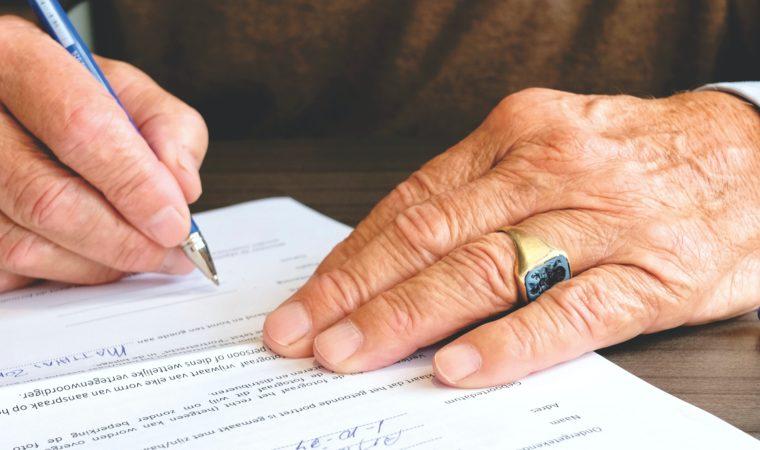The rise of COVID-19 caused many people to shelter-in-place in their homes. At the same time, many businesses allowed employees to work remotely and closed their physical locations. While many people have been creative in continuing their daily lives from home, there are some things that still require in-person proceedings.
For instance, certain official documents may require notarization and witness signatures. Especially in the field of estate planning, no testamentary document or Trust can have a legal effect without these key components. Although an attorney could help to craft an estate plan through online consultations, final versions of documents may still require an in-person visit.
However, to keep people safe during the pandemic, many states have enacted laws that allow for online notary services and remote witnessing of signatures. The exact laws will vary on a state-by-state basis, so it is important to consult a local attorney with knowledge of the notarization and witness requirements during COVID-19.
Many States Allow for Remote Notary and Witness Services
Every state has laws concerning the proper creation of a Will or Trust. These laws state that a testator must sign the document in the presence of at least two other witnesses, and the execution of the document must be in the presence of a notary public. This creates obvious complications due to COVID-19 restrictions.
In response, many states have passed laws that loosen this strict requirement. Some have adopted remote online notary laws that allow for the notarization of electronically signed documents, but the signer must still appear in person before the notary. Similar laws can allow for a witness to sign a document electronically while on a video call with the testator and the notary. These laws function to limit the contact between people while still providing essential legal services.
Social Distancing for In-Person Notarization and Witness Signatures
While many states have enacted laws that slightly loosen the notary and witness requirements, others have not taken this step. In many cases, a Will or Trust will require an in-person visit to carry legal weight.
Even so, proper social distancing can still keep everyone safe during these proceedings. A witness must merely be in the room while a testator signs a document, so this person could stand six feet away. Similarly, a notary can pick up identification left on a table and place their stamp on a document in the testator’s presence without coming close to them. With simple modifications, signing, witnessing, and notarizing documents can be a safe process for all involved.
Talk to a Lawyer about COVID-19 Notary and Witness Requirements
Most states are recommending that we avoid contact with others as much as possible. However, this can cause substantial complications in proceedings that require in-person visits, such as the signing of Wills, Trusts, or other testamentary documents.
Fortunately, some states have loosened their rules concerning notarization and witnesses. In some cases, a notary or witness may be able to attest to the signing of a document through a video call or certify that an electronic signature is genuine. However, this option is not available everywhere. Talk with an attorney to learn which rules apply in your state and discuss how you can create your estate plan while remaining safe.



